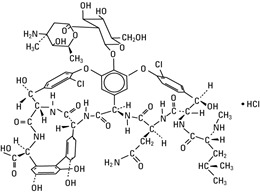I saw the discussion below in one of the pharmacy forums. Fact check true on this one.

Gilead would have everyone believe that remdesivir is a magic bullet for COVID-19 infection. Not true. Helpful? Useful tool? Maybe.
Remdesivir, while potentially beneficial, has limitations. For one, it should only be used on hospitalized patients that have falling oxygen saturation and chest infiltrates. Second, while it has been shown to potentially shorten the course of the disease, it has not been shown to reduce mortality.(1)
On the flipside, the drug is relatively expensive, has been overused, and contrary to data showing that it may shorten the course of the disease, may inadvertently lengthen hospital stays.
Based on the “Solidarity†trial, a WHO guideline committee went as far as to recommend against the use of remdesivir.(2)
“The Solidarity Trial published interim results on 15 October 2020. It found that all 4 treatments evaluated (remdesivir, hydroxychloroquine, lopinavir/ritonavir and interferon) had little or no effect on overall mortality, initiation of ventilation and duration of hospital stay in hospitalized patients… So far, only corticosteroids have been proven effective against severe and critical COVID-19. [see RECOVERY trial (3)]… The researchers determined the evidence quality to be low for remdesivir in regard to improving time to clinical improvement, hospitalization duration and mechanical ventilation duration.”
However, you won’t find physicians touting this particular WHO recommendation. Why not? Simply put, it doesn’t fit the narrative put forward by Gilead and the media. Nor does the WHO recommendation give practitioners access to this new therapeutic toy. A combination of marketing and fear has led to remdesivir rapidly evolving into “best practiceâ€. It is basically spreading through hospitals unchecked.
But Jerry, no hospital could have predicted the pandemic and therefor the cost of remdesivir. True. However, if remdesivir truly cut hospital stays by a couple of days and reduced time on mechanical ventilation, the cost of the drug would be a wash. I have not seen any large-scale data to support this notion. As of today, hospitals have spent millions upon millions of dollars on remdesivir. Not to mention that there are reports of providers prolonging patient stays to complete remdesivir treatment courses even when patients have met criteria for discharge. Such practice spits in the face of common sense.
But Jerry, even if it saves one life it will have been worth it. Ah yes, the battle cry of people who want something done, regardless of the consequences. Such sentiment seems reasonable on the surface, but quickly fades with analysis and thought. A philosophical debate for another time. Suffice it to say that real life doesn’t work that way.
Overall, the unfettered use of remdesivir, combined with failure of healthcare to provide clear, concise, science-based use criteria, has created a budget pitfall that will take years to climb out of, if at all. It’s this type of fiscal irresponsibility that makes the U.S. healthcare system so special.
———-
- Healio.com. 2021. Remdesivir shortens time to improvement, but has no significant mortality effect. [online] Available at: <https://www.healio.com/news/primary-care/20210331/remdesivir-shortens-time-to-improvement-but-has-no-significant-mortality-effect> [Accessed 29 April 2021].
- Who.int. 2021. “Solidarity†clinical trial for COVID-19 treatments. [online] Available at: <https://www.who.int/emergencies/diseases/novel-coronavirus-2019/global-research-on-novel-coronavirus-2019-ncov/solidarity-clinical-trial-for-covid-19-treatments> [Accessed 30 April 2021].
- New England Journal of Medicine, 2021. Dexamethasone in Hospitalized Patients with Covid-19. 384(8), pp.693-704.


 medGadget
medGadget